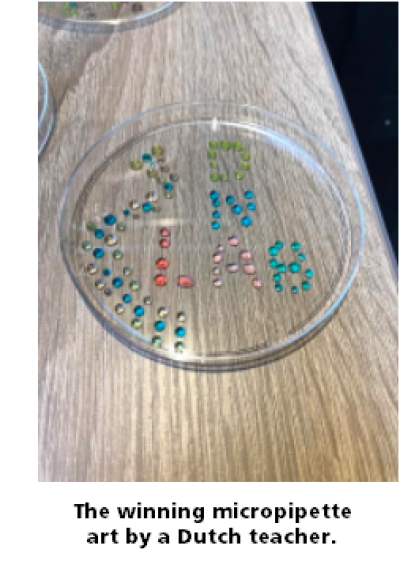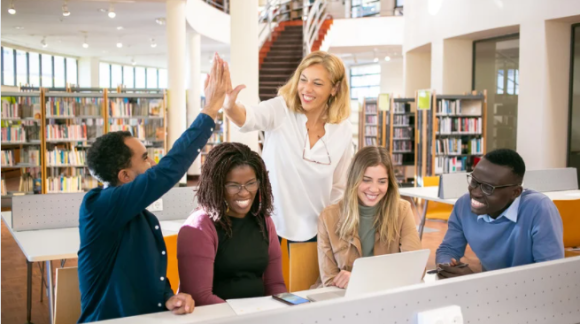In this monthly feature, the ABE Program Office highlights strategies different sites are using to scale for depth, spread, shift, and sustainability. This month, we focus on ABE program sites using promising scaling strategies for spread.
When people think of scale, they usually think first about spread—an increase in numbers. By this definition, scaling ABE for spread can mean implementing the program in more sites or reaching more schools, teachers, and students. However, in a global climate deeply affected by health and safety restrictions, we have an opportunity to think about spread differently. For example, spread could entail reaching more teachers and students virtually, engaging more teachers within an already participating school, or engaging more teachers in ABE activities (whether global, regional, or local). The following are examples of how several ABE sites are scaling for spread.
ABE Canada has focused on reaching greater numbers of students in low socio-economic-status schools by partnering with Visions of Science (VoS) to offer 1-day laboratory sessions as part of their STEM Leadership Camps held every July on the University of Toronto Mississauga (UTM) campus. This camp brings predominantly African-Canadian students from under resourced communities to UTM, and instills leadership and inquiry skills to aid students in their role as VoS ambassadors at their respective schools. ABE Canada is also working with Carleton University in Ontario to establish a distribution site that will allow them to reach French-speaking and Indigenous students.
Image
- ABE The Netherlands held a teacher micropipetting competition at a booth during a conference for science teachers. They asked teachers to create artwork using micropipettes and whoever made the most beautiful creation would be able to book their choice of date to implement ABE at their school. This recruitment approach was very popular with teachers, who returned to the booth to see what their peers had created.
- ABE Germany has recruited five new schools, including a technical college. The team is providing training directly at the schools, making it easier for those teachers to participate. One of the trainings was developed in coordination with the DeltaPLUS program, an initiative of the Institute for School Quality in Bavaria. Within DeltaPLUS, innovative school course concepts are developed by teachers or presented by external organizations for integration into the classroom.
Next month, the Program Office will focus on strategies program sites are using to support scaling for shift. Want to learn more about different approaches to scale? Contact Jessica Juliuson.
